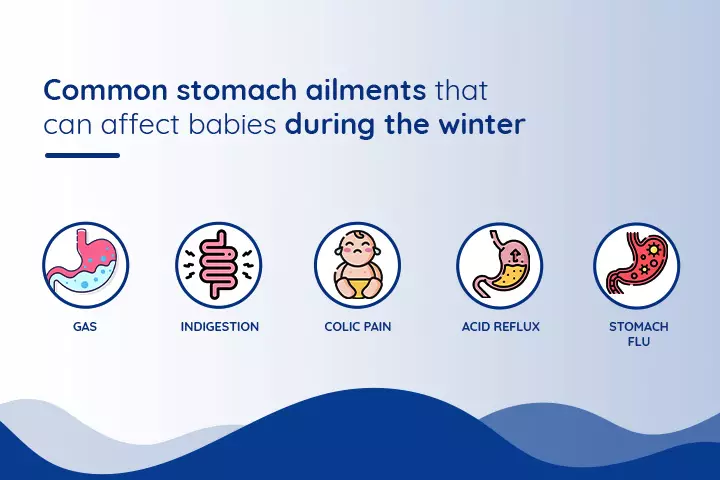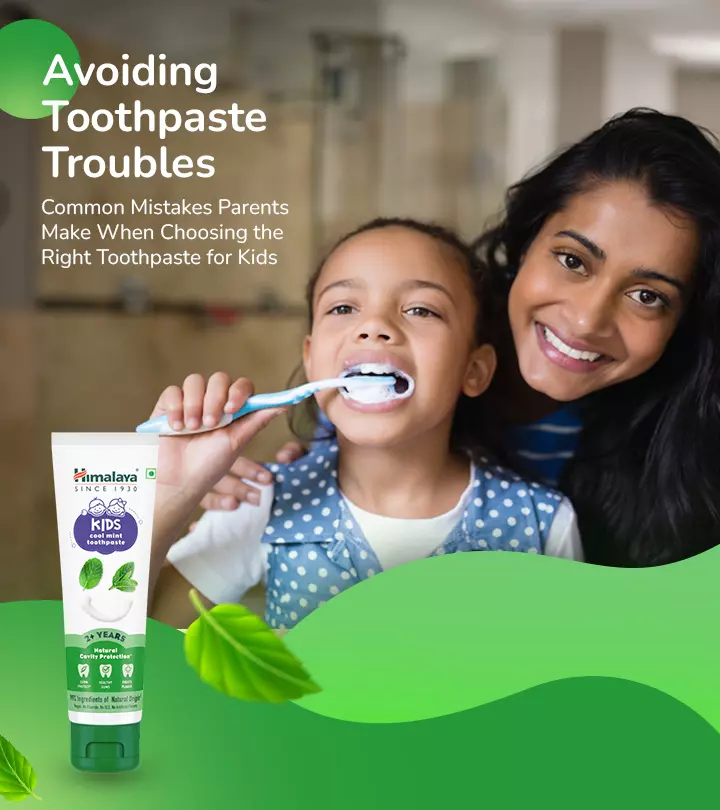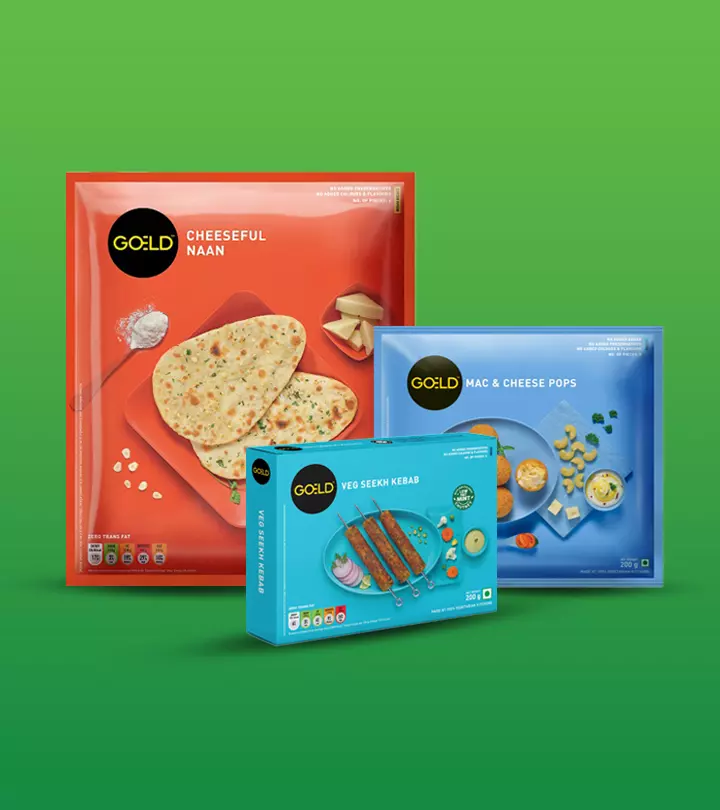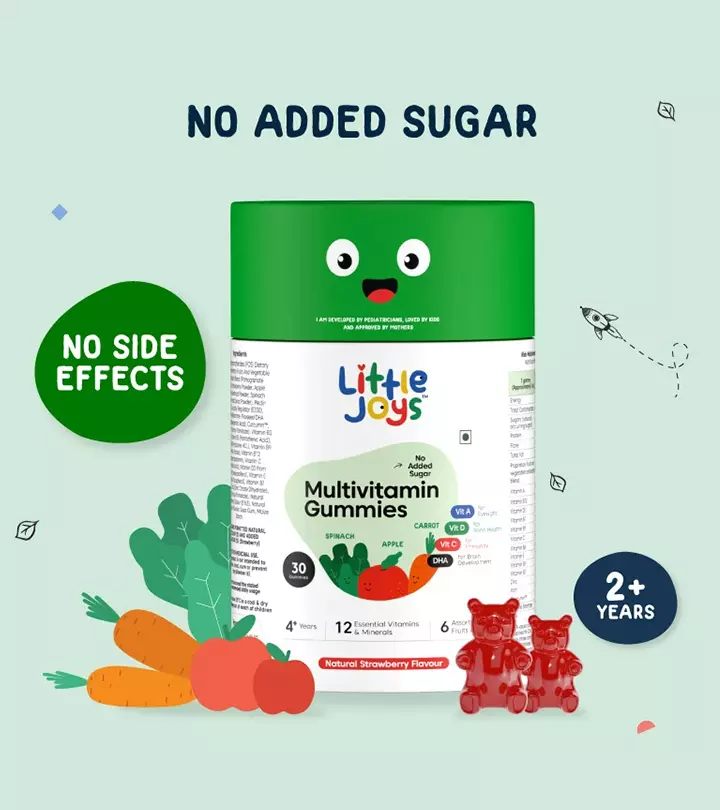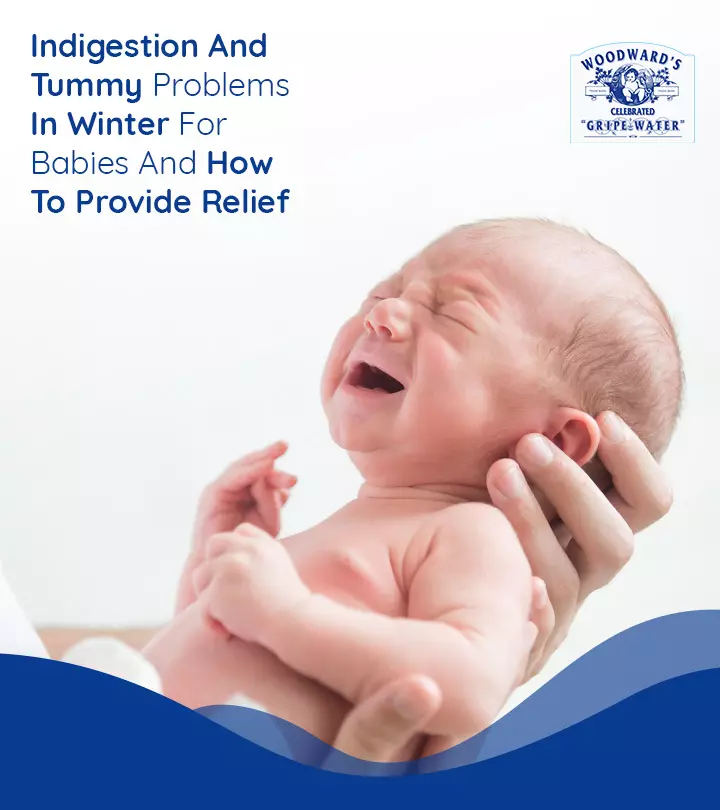

Winter months means parents need to be more cautious about their little ones. Along with cooler temperatures, one also sees an increase in infections and diseases to which babies become easily susceptible. Cold weather suppresses immunity, affecting the baby’s ability to fight infections. Also, cold weather can worsen conditions such as acid reflux and indigestion, making babies more prone to colic pain and discomfort. This can be concerning and worrisome for parents. So to address this issue, let us first read about common stomach ailments that can affect babies during the winter and, subsequently, what we can do to provide relief.
Gas:
Babies tend to swallow air during feeding or between feeds which accumulate in their tummies. During winters with a slower metabolism, digestion may become a little more complicated, thereby increasing incidents of gas formation.
Indigestion:
Indigestion is quite common during winter. This could be due to a slower metabolism or staying indoors for extended periods, reducing activity levels. Babies, too, face their fair share of indigestion agonies during the colder months. They sleep more, stay swaddled for longer periods, and have less sunlight exposure, all of which affect their digestive health leading to more episodes of indigestion.
Colic pain:
Colic pain can be painful for babies and disheartening for parents. Signs include:
- Having a flushed face.
- A tight belly.
- Curling their legs up towards their bellies when crying.
- Burping often.
- Passing a lot of gas.
Experts suggest that you can say your baby has colic if your baby cries for more than three hours a day, three days a week for at least one week.
Acid Reflux:
Babies often suffer from acid reflux. It happens when the stomach contents back up in the esophagus. Infants are more prone to this since their digestive system is still developing. Research suggests more than half the infants will face acid reflux at one point or the other. The good news is that although this condition might peak at four months, it usually subsides between 12 and 18 months. The common signs may include irritability, gagging or choking during feeding, abnormal arching, and disturbed sleep. Since babies, like adults, stay more indoors during cold winters, the lack of sunlight might, at times, lead to lower levels of vitamin D, which in turn might lead to an increase in acid reflux.
Stomach Flu:
Winter is the most common time for viral gastroenteritis. It is a stomach and intestine infection with symptoms like stomach pain, diarrhea, and vomiting. It is caused by viruses that are very contagious. Since babies are still developing an immune system, so they become more susceptible to these infections than adults.
So now that we have come to know about the common stomach ailments in babies during winter, let us read up on steps that we can take to protect them from these diseases.
Keep Them Warm:
Although this might sound very basic, ensuring your baby is warmly dressed is one the simplest ways of protecting them from the harsh climate. This is because when the body is warm, the immune system is in a better position to fight infections and diseases compared to when the body is feeling cold. Also, it is good to remember that infants and toddlers do not have the same level of cold tolerance as adults. So keeping them warm is one of the simplest ways of keeping them safe.
Give Them Warm Fluids:
Warm fluids like breastmilk, turmeric milk, soup, etc., depending upon the baby’s age help optimize the child’s body temperature while ensuring that they stay hydrated. It is also a great primary treatment for gastroenteritis, as giving your child plenty of fluids to drink is the best way to help him recover while preventing dehydration.
Ensure Good Hygiene:
Keeping your baby and the surroundings clean is the stepping stone to preventing infections during winter. Washing your hands before touching/ preparing/ feeding your baby is a simple yet effective way to prevent the transfer of viruses. Also, by keeping your baby’s hands clean and giving the baby a sponge bath/ regular bath daily, you can help ensure good hygiene. Keeping the baby’s toys clean and using a disinfectant for cleaning the baby’s utensils and other ways to keep germs away. Also, regularly sanitize the baby’s utensils, teats, bowls, etc. All these steps together can reduce your baby’s chances of falling sick.
Take Them Out:
Taking your baby out for a stroll or to the park during day time is a great idea. It enables your baby to get some sunlight while helping them stay active and breathe in the fresh air. It also helps them feel warm and ensures they get some natural vitamin D. However, avoid leaving them in direct sunlight for prolonged hours and, if possible, avoid the sun between 12 and 3 PM.
Keep Gripe Water Handy:
Gripe water is an over-the-counter natural supplement that helps ease infant gas and colic while helping aid digestion. It has an ayurvedic formulation and contains natural & know ingredients like Dill Seed Oil, Sarjikakshara and can be administered to even newborn babies but only after consulting the baby’s pediatrician. During winter, administering gripe water can help prevent many stomach ailments in the little ones while providing relief from colic pains. However, one must consult the baby’s doctor for age-appropriate dosage.
So although winter months are considered one of the best times of the year, it has its fair share of issues regarding the health of babies, including stomach ailments. However, by being vigilant, following good hygiene methods, and keeping concoctions like gripe water handy, you can help prevent stomach ailments while reducing visible discomfort for your little one.
Community Experiences
Join the conversation and become a part of our nurturing community! Share your stories, experiences, and insights to connect with fellow parents.

